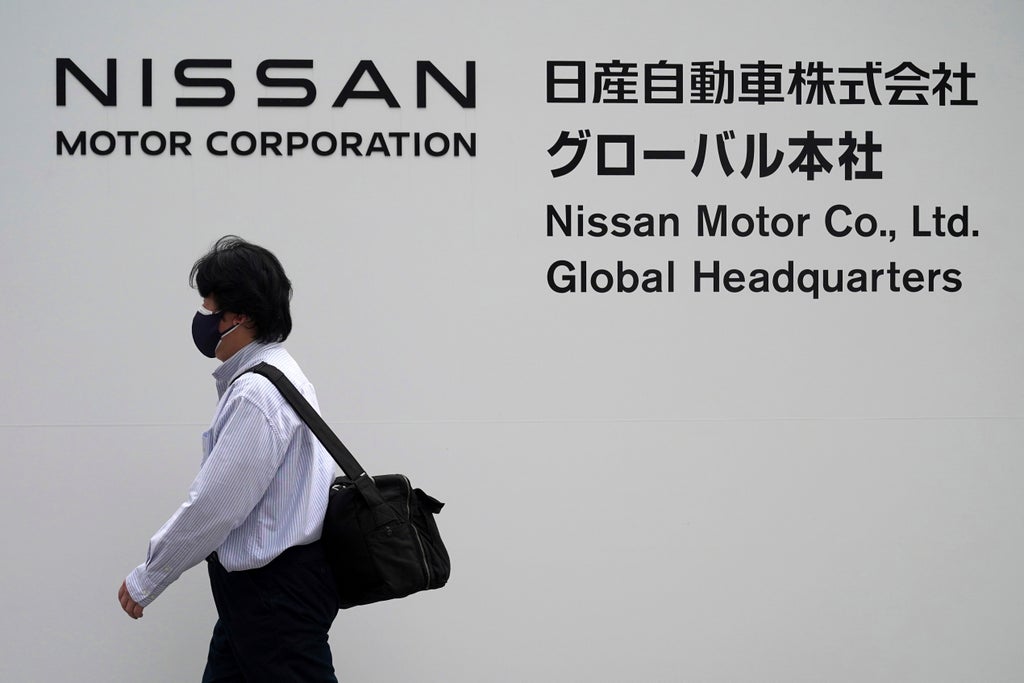
Japanese automaker Nissan returned to profitability in the last fiscal year for the first time in three years, despite challenges such as supply shortages caused by the pandemic and soaring costs.
Nissan Motor Co. reported Thursday a net profit of 215.5 billion yen ($1.7 billion) for the fiscal year through March, a reversal from the 448.7 billion yen loss recorded the previous fiscal year.
Annual sales rose 7% to 8.4 trillion yen ($65 billion).
In the January-March quarter, Nissan posted a profit of 14.2 billion yen ($110 million). It recorded an 81 billion yen loss in the same period the year before.
Nissan Chief Executive Makoto Uchida said semiconductor supply shortages will remain a challenge in coming months.
Higher raw materials prices, the impact of lockdowns in China and the war in Ukraine were also reasons for concern, according to Nissan.
But Uchida said he was confident about being able to “ensure Nissan remains a truly healthy and resilient company that in any business environment can be financially stable and profitable.”
Nissan, allied with Renault SA of France, is projecting a profit of 150 billion yen ($1.2 billion) for the fiscal year through March 2023.
Nissan plans to sell 4 million vehicles around the world, up 3% from nearly 3.9 million vehicles sold the previous year, with healthier sales in Japan and North America. The company's sales in China would be little changed but they would decline in Europe, since Nissan's operations in Russia and Ukraine have been suspended.
The company's Chief Operating Officer Ashwani Gupta said Nissan has streamlined its product lineup to focus on what he called “core models” to boost profitability.
“We are transforming ourselves,” he said.
The Yokohama-based maker of the Leaf electric car, Infiniti luxury models and March subcompact is proceeding to the next level of growth, said Gupta.
Nissan’s reputation was tarnished by a high-profile scandal of its former star executive Carlos Ghosn, who was arrested on financial misconduct charges in 2018. He jumped bail and fled Japan. He and is now in Lebanon, the nation of his ancestry.
Ghosn, who led Nissan for two decades, has insisted on his innocence, arguing he was a victim of an internal corporate coup led by misguided officials.
Nissan is banking on the global shift to electric vehicles to counter climate change, as it was an early leader in EVs, a move launched by Ghosn.
It has the electric Ariya sport utility vehicle this year and a smaller model EV. But it faces intensifying competition since the industry is rushing to rev up on EVs, including powerful players like Tesla.







